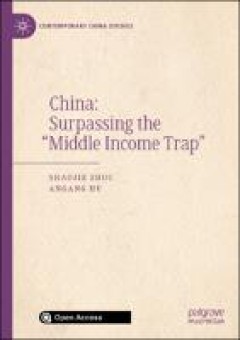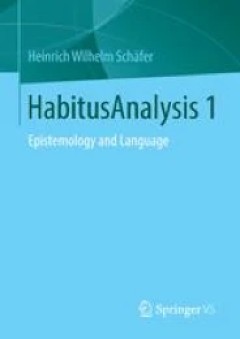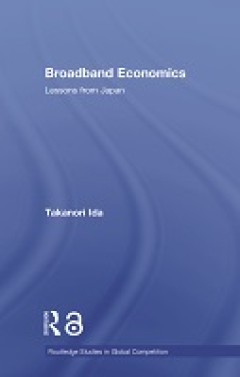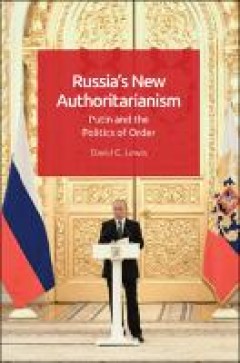Filter by

Handbook of Ratings Approaches to Ratings in the Economy, Sports, and Society
This handbook presents a systematic overview of approaches to, diversity, and problems involved in interdisciplinary rating methodologies. Historically, the purpose of ratings is to achieve information transparency regarding a given body’s activities, whether in the field of finance, banking, or sports for example. This book focuses on commonly used rating methods in three important fields: f…
- Edition
- -
- ISBN/ISSN
- 978-3-319-39260-8
- Collation
- XVIII, 356
- Series Title
- -
- Call Number
- 330 KAR h

An Economic History of Cambodia in the Twentieth Century
While colonization, protracted war and violent revolution are commonly blamed for Cambodia's failure to modernize its economy in the twentieth century, Margaret Slocomb's Economic History of Cambodia in the Twentieth Century questions whether these circumstances changed the underlying structures and relations of production. She also asks whether economic factors in some way instigated war and r…
- Edition
- -
- ISBN/ISSN
- 9789971697198
- Collation
- -
- Series Title
- -
- Call Number
- 330

China: Surpassing the “Middle Income Trap”
This open access book explores one of the most fiercely debated issues in China: if and how China will surpass the middle income trap that has plagued many developing countries for years. This book gives readers a clear picture of China today and acts as a reference for other developing countries. China is facing many setbacks and experiencing an economic slowdown in recent years due to some se…
- Edition
- -
- ISBN/ISSN
- -
- Collation
- -
- Series Title
- -
- Call Number
- 330

HabitusAnalysis 1 Epistemology and Language
This book is the first of three volumes of HabitusAnalysis that take the sociology of Pierre Bourdieu as a starting point to develop a methodical approach to the habitus of social actors. However, the concept of habitus and Bourdieu’s approach to language are somewhat disputed while his relationist epistemology is seldom paid tribute to. The present volume therefore in its first part deals wi…
- Edition
- -
- ISBN/ISSN
- 978-3-531-17511-9
- Collation
- XXIV, 372
- Series Title
- -
- Call Number
- 300 SCH h

Broadband Economics : Lessons from Japan
Japan's high-speed Internet access services such as ADSL, CATV Internet and FTTH are considered the cheapest and fastest state-of-the-art services drawing international attention. In this book the author introduces the current status of broadband services in Japan and their recent development in competition policy. An econometric model is proposed and discussed to analyse access demand. The pur…
- Edition
- -
- ISBN/ISSN
- 9780415860741
- Collation
- -
- Series Title
- -
- Call Number
- 330

Russia's New Authoritarianism : Putin and the Politics of Order
Studies the transformation of Russian domestic politics and foreign policy under Vladimir Putin Asks what kind of political system ‘Putinism’ denotes Engages with the scholarly and policy debate on the growth of illiberal politics and authoritarianism globally in the post-Soviet space and in countries as diverse as Hungary, Egypt, Turkey and the Philippines Uses contemporary case studies �…
- Edition
- -
- ISBN/ISSN
- 9781474454780
- Collation
- -
- Series Title
- -
- Call Number
- 320

The African National Congress and the Regeneration of Political Power
The ANC is a party-movement that draws on its liberation credentials yet is conflicted by a multitude of weaknesses, factions and internal succession battles. Booysen constructs her analysis around the ANC’s four faces of political power – organisation, people, political parties and elections, and policy and government – and explores how, since 1994, it has acted to continuously regenerat…
- Edition
- -
- ISBN/ISSN
- -
- Collation
- -
- Series Title
- -
- Call Number
- 320

Forestry and Water Conservation in South Africa
This innovative interdisciplinary study focuses on the history, science, and policy of tree planting and water conservation in South Africa. South Africa’s forestry sector has sat—often controversially—at the crossroads of policy and scientific debates regarding water conservation, economic development, and biodiversity protection. Bennett and Kruger show how debates about the hydrologica…
- Edition
- -
- ISBN/ISSN
- 9781925022834
- Collation
- -
- Series Title
- -
- Call Number
- 363.7

Before Kukulkán : Bioarchaeology of Maya Life, Death, and Identity at Classi…
This volume illuminates human lifeways in the northern Maya lowlands prior to the rise of Chichén Itzá. This period and area have been poorly understood on their own terms, obscured by scholarly focus on the central lowland Maya kingdoms. "Before Kukulkán" is anchored in three decades of interdisciplinary research at the Classic Maya capital of Yaxuná, located at a contentious cross…
- Edition
- -
- ISBN/ISSN
- 9780816541713
- Collation
- -
- Series Title
- -
- Call Number
- 300

From Slavery to Civil Rights : On the streetcars of New Orleans 1830s-Present
The history of Louisiana from slavery until the Civil Rights Act of 1964 shows that unique influences within the state were responsible for a distinctive political and social culture. In New Orleans, the most populous city in the state, this was reflected in the conflict that arose on segregated streetcars that ran throughout the crescent city. This study chronologically surveys segregation on…
- Edition
- -
- ISBN/ISSN
- 9781789622249
- Collation
- -
- Series Title
- -
- Call Number
- 341.48
 Computer Science, Information & General Works
Computer Science, Information & General Works  Philosophy & Psychology
Philosophy & Psychology  Religion
Religion  Social Sciences
Social Sciences  Language
Language  Pure Science
Pure Science  Applied Sciences
Applied Sciences  Art & Recreation
Art & Recreation  Literature
Literature  History & Geography
History & Geography